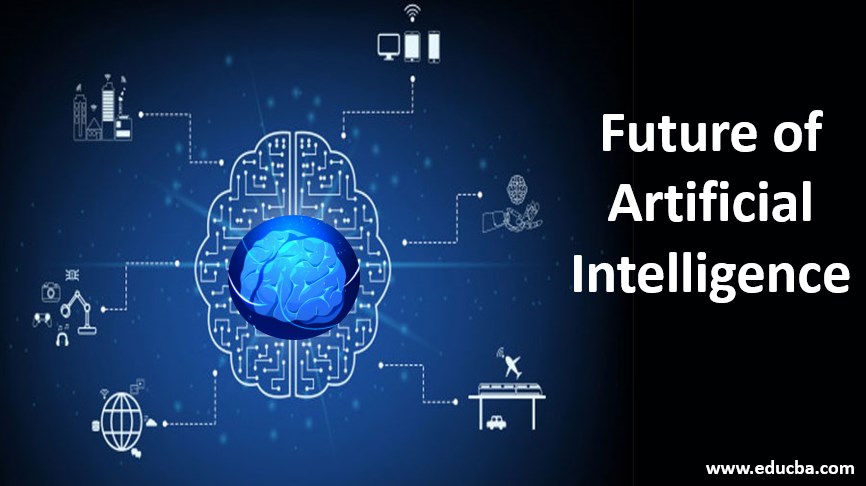Artificial intelligence (AI) has rapidly transformed from a niche technological concept to a central component of our daily lives. As we look towards the future, the integration of AI into everyday experiences promises to revolutionize how we live, work, and interact with the world around us. From smart homes to personalized healthcare, the potential applications of AI are vast and varied. This article explores how AI is expected to shape our future, highlighting key areas where it will have a significant impact.
- Smart Homes and IoT Integration
The concept of a smart home is becoming increasingly common, with AI at the heart of this transformation. Smart devices, powered by AI algorithms, can learn from our behaviors and preferences, making our homes more comfortable and efficient. For example, smart thermostats can adjust the temperature based on our habits, while AI-powered lighting systems can optimize energy use by adjusting brightness according to natural light levels.
In the near future, we can expect a more seamless integration of AI with the Internet of Things (IoT). Smart appliances will not only communicate with each other but also analyze data to improve their functionality. Imagine a refrigerator that can track your food inventory, suggest recipes based on what you have, and even order groceries automatically when you’re running low. This level of convenience will redefine how we manage our households.
- Enhanced Personalization in Entertainment
The entertainment industry is already utilizing AI to deliver personalized content, but future advancements will take this to new heights. Streaming services like Netflix and Spotify use AI algorithms to recommend shows and music based on our viewing and listening habits. As AI technology evolves, these recommendations will become even more nuanced, taking into account mood, time of day, and social context.
In addition to content recommendations, AI will enable more interactive and immersive experiences. Virtual reality (VR) and augmented reality (AR) will leverage AI to create dynamic environments that respond to user actions and preferences in real time. This means that movies, games, and live events could become personalized experiences tailored specifically to each individual, enhancing engagement and satisfaction.
- Transforming Transportation
AI is already making waves in the transportation sector, with the development of autonomous vehicles. In the future, we can expect a significant shift in how we commute, as self-driving cars become more prevalent. These vehicles will not only reduce the number of accidents caused by human error but will also optimize traffic flow, leading to shorter travel times and less congestion.
Furthermore, AI will enhance public transportation systems. Smart traffic management systems can analyze real-time data to improve routes and schedules, making public transport more efficient. Additionally, AI can facilitate ride-sharing services, ensuring that users can find rides quickly while minimizing wait times and costs.
- Revolutionizing Healthcare
The healthcare industry stands to benefit immensely from AI advancements. AI-driven tools will assist in diagnosing diseases more accurately and efficiently than human practitioners. Machine learning algorithms can analyze vast amounts of medical data, identifying patterns and predicting outcomes. This can lead to earlier interventions and better patient outcomes.
Personalized medicine, enabled by AI, is another promising area. AI can analyze an individual’s genetic makeup and lifestyle factors to recommend tailored treatment plans. Furthermore, AI-powered virtual health assistants will provide patients with immediate access to medical advice, appointment scheduling, and medication reminders, making healthcare more accessible.
- Redefining Workplaces
The future of work will be heavily influenced by AI technologies. Routine tasks that are time-consuming and repetitive will increasingly be automated, allowing employees to focus on more strategic and creative aspects of their jobs. For instance, AI can handle data entry, scheduling, and even basic customer service inquiries through chatbots.
Collaboration tools powered by AI will enhance team productivity. AI algorithms can analyze team dynamics and suggest optimal collaboration strategies, improving communication and project outcomes. Moreover, AI can facilitate continuous learning by identifying skills gaps within a workforce and recommending training programs tailored to individual needs.
- Ethical Considerations and Challenges
As we embrace the future of AI, it is crucial to consider the ethical implications and challenges that arise. Issues such as data privacy, bias in AI algorithms, and job displacement are pressing concerns that need to be addressed. Ensuring that AI systems are transparent and fair is essential to maintain public trust.
Policymakers, technologists, and ethicists must collaborate to establish guidelines that govern the use of AI in everyday life. This includes creating frameworks for data protection, accountability, and equitable access to AI technologies. The future of AI should be inclusive, ensuring that all individuals benefit from advancements rather than being left behind.
- Education and Lifelong Learning
AI will play a transformative role in education, personalizing learning experiences to meet the needs of individual students. Adaptive learning platforms powered by AI can assess a student’s strengths and weaknesses, tailoring educational content to their unique learning pace. This approach can help improve student engagement and outcomes.
Moreover, AI can facilitate lifelong learning by providing accessible resources for skill development. As job markets evolve, individuals will need to continuously update their skills. AI-driven platforms can recommend courses and learning paths based on career goals, making education more relevant and attainable.
Conclusion
The future of artificial intelligence in everyday life is bright, promising enhanced convenience, personalization, and efficiency across various domains. From smart homes to healthcare and workplaces, AI will undoubtedly redefine our experiences. However, as we navigate this exciting landscape, it is vital to address the ethical challenges that accompany these advancements.
By fostering collaboration between stakeholders and establishing responsible AI practices, we can harness the full potential of AI while ensuring that it serves as a force for good in society. As we move forward, the question will not just be how AI will change our lives, but how we can shape its development to create a better future for everyone.

